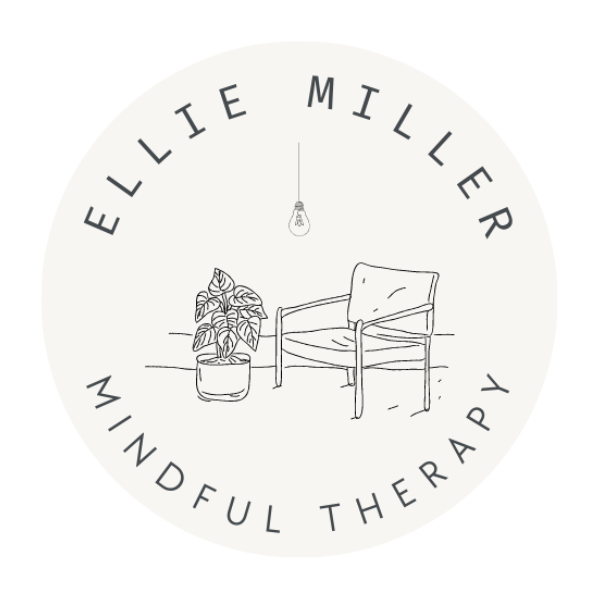Mindful News Consumption: Tips for Dealing with Overwhelm While Staying Informed
It’s not a wild assumption to guess that the news can stress you out frequently, right? Do you ever feel torn between your desire to be informed and also have some peace in your life? You're not alone.
It’s easy to get swept up in the 24-hour news cycle and feel overwhelmed by the constant influx of information. But with a few mindful news consumption habits, you can ease anxiety while still staying up to date on the topics you care about.
In this post we'll check out what mindful news consumption is, how it can help manage anxiety, and provide some practical tips for incorporating it into your daily routine.
Let's get started!
Mindful News Consumption: What is it?
Mindful News Consumption: the practice of consuming news in a deliberate, intentional, and mindful way.
It involves being aware of your thoughts, feelings, and reactions to the news, and choosing how to engage with it in a way that aligns with your values and promotes mental well-being.
It’s a way to stay informed without feeling overwhelmed or anxious about the constant barrage of news and hot takes.
By approaching news consumption in a more mindful way, you can better understand the events and issues shaping our world, while also taking care of your mental and emotional wellbeing. Win-win.
Why we Get So sucked In: The All Powerful Doom-scroll
You know you’ve been there, we all have. The steady diet of all the horrible things going on in the world in concentrated doses is definitely not helping your nervous system relax, but it’s so hard to stop! Let’s take a sec to look at why we get so stuck in this habit from time to time ↓
1.) news is designed to capture our attention and emotions.
News outlets use sensational headlines and stories that evoke strong emotions such as fear, anger, or excitement to grab our attention and keep us engaged. The more emotionally charged the news is, the more likely we are to keep scrolling and clicking for more.
Social media and news outlets are specifically designed to keep us engaged for as long as possible. They use algorithms to tailor content to our interests and keep us scrolling by constantly refreshing our feeds with new stories and updates.
2.) FOMO
The 24-hour news cycle and the constant stream of information can create a sense of FOMO (fear of missing out) or anxiety if we're not constantly up-to-date on the latest news. We may feel like we're not fully informed or prepared for what's happening in the world if we're not constantly checking the news.
3.) Grasping for Certainty
The uncertainty and unpredictability of the world can also contribute to our need to stay informed. With so many unknowns and rapid changes happening all the time, we may feel like we need to stay on top of the news in order to feel a sense of control or preparedness.
I remember really being driven by this in the early stages of the pandemic. Repeatedly checking, hoping for some sense of clarity, and idea of what would happen next during such a challenging time.
How Can Mindfulness Help Manage News Anxiety?
Mindfulness is the practice of being present and aware in the moment, without judgment. When applied to news consumption, it can help manage anxiety by allowing you to:
Recognize and regulate your emotional reactions to the news
Make conscious decisions about how much and what type of news to consume
Focus on the present moment and avoid catastrophizing or ruminating about the future
Develop a sense of perspective and balance when consuming news
Benefits of Mindful News Consumption
It’s worth your time! Practicing mindful news consumption has several benefits for managing anxiety, including:
Reducing feelings of overwhelm and anxiety
Increasing a sense of control over the news and its impact on your life
Fostering a greater sense of connection to your values and beliefs
Improving your ability to take action and make positive changes in your community and the world
Tips for Mindful News Consumption
Now that we've covered the basics of mindful news consumption, let's dive into some practical tips for incorporating it into your daily routine.
Set Boundaries
One of the most important things you can do for mindful news consumption is to set boundaries. This means being intentional about when, where, and how you consume news. Some tips for setting boundaries include:
Limit the amount of time you spend consuming news each day. Set a specific time limit or frequency and stick to it.
Set aside time each day to disconnect from news and engage in self-care activities, such as meditation, exercise, or spending time with loved ones.
Take a break from news consumption altogether if you feel overwhelmed or anxious.
Remember that taking breaks from news consumption does not mean you are uninformed or uncaring; it's a form of self-care
Avoid consuming news first thing in the morning or right before bed.
2. Choose Reputable Sources
Choosing reputable sources is key to consuming news mindfully. Here are some tips for choosing reliable sources:
Research the source to make sure it is reputable and unbiased.
Choose sources that present information in a balanced and nuanced way.
Avoid sources that rely on clickbait, sensationalism, or fear-mongering to get clicks.
3. Mindful Social Media Usage
When we're repeatedly bombarded with tragic news stories on social media throughout the day, it can really take a toll on our anxiety levels. Each time we encounter these distressing stories, they provoke intense emotions and make us feel constantly on edge, making it hard to find a sense of peace or calm in our daily lives.
Limit your social media news exposure.
Be mindful of your social media usage and limit the amount of time you spend scrolling through news feeds.
Unfollow or mute accounts that consistently share negative or triggering news content.
Consider setting a designated time of day to check social media news updates, rather than constantly checking throughout the day.
Remember that it's okay to take a break from social media altogether, especially if it's impacting your mental health.
4. Tap Into positive news sources
Did you know that our minds have a tendency to focus more on negative news than the positive stuff? It's called negativity bias, and it can leave us feeling overwhelmed and pessimistic.
That's why it's so important to balance our news consumption by incorporating good news stories. They remind us that there's still plenty of good happening in the world and give us a more balanced perspective.
Seek out news sources that focus on positive or uplifting stories.
Subscribe to newsletters or podcasts that share good news and inspiring stories.
Balance your news consumption by actively seeking out positive news stories to counteract the negative ones.
5. Control what you can: Get involved in positive actions
One of the main reasons we want to check the news is because we care. We care about other people and what’s happening around the world. But sometimes when we overdo the news consumption, our little ‘ole brains and hearts can’t handle it all and we might start to shut down, making us feel more helpless.
Taking positive action towards causes you care about, coupled with setting limits on news consumption, can be a powerful strategy to reduce feelings of overwhelm and hypervigilance caused by tragic news. By channeling your energy into making a difference, you can cultivate a sense of meaning and purpose, moving away from a sense of helplessness
Instead of feeling helpless or overwhelmed by negative news stories, take action by getting involved in positive initiatives and movements.
Volunteer with local organizations or charities that align with your values.
Donate to causes that support positive change.
Taking action can help us feel empowered and make a positive impact in our communities and the world.
6. Get Support
As always, if you’re feeling so overwhelmed by current events, reach out for support. Whether it’s a trusted friend, support group, or therapy, support is out there for you.
Happy Balancing Friend!
Setting boundaries, choosing reputable sources, limiting our consumption, engaging in critical thinking, practicing self-compassion, and taking action are all essential steps in building a mindful news consumption routine.
Let's take a step back from the overwhelming news cycle and approach news consumption with intention and mindfulness. By doing so, we can not only reduce our anxiety but also promote a more positive and informed perspective of the world around us.
Hi! I’m Ellie, a Baltimore based private practice therapist offering online therapy to empathetic women & couples in Maryland. I help women manage anxiety & stress and couples strengthen their relationships.
If you want more anxiety tools and tips from my private practice, straight to your inbox, I’d love to have you join The Detangler, my weekly lighthearted newsletter. If you live in Maryland or Virginia, reach out to see if we’re a good fit for therapy!











